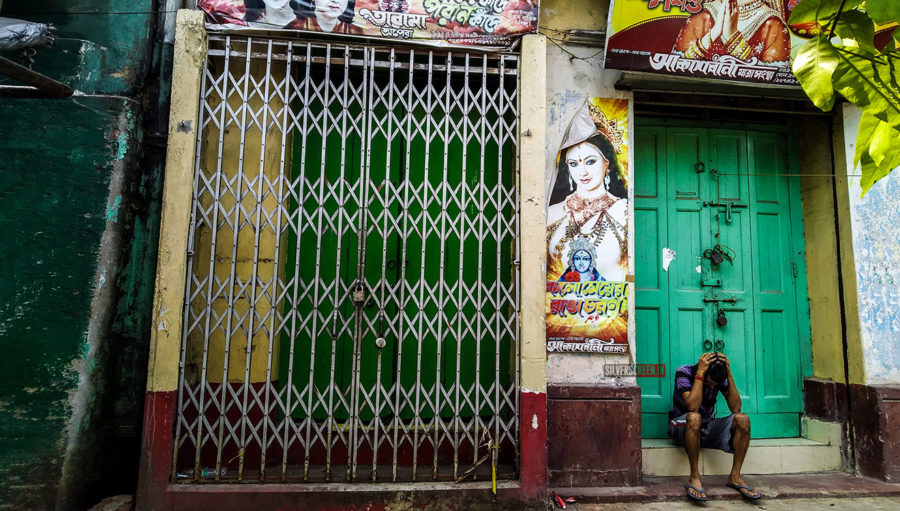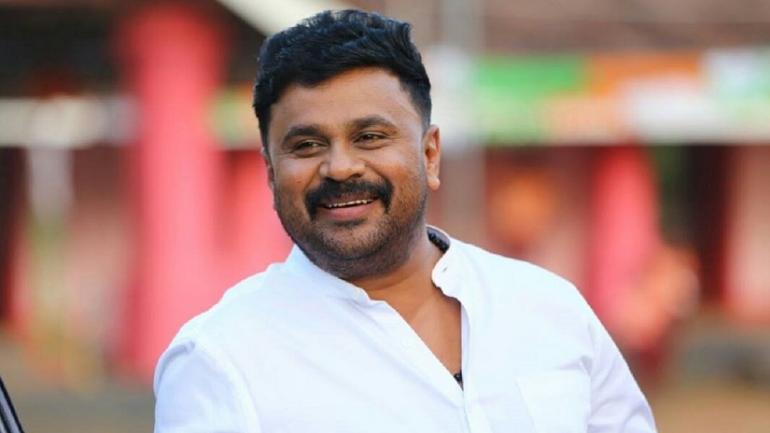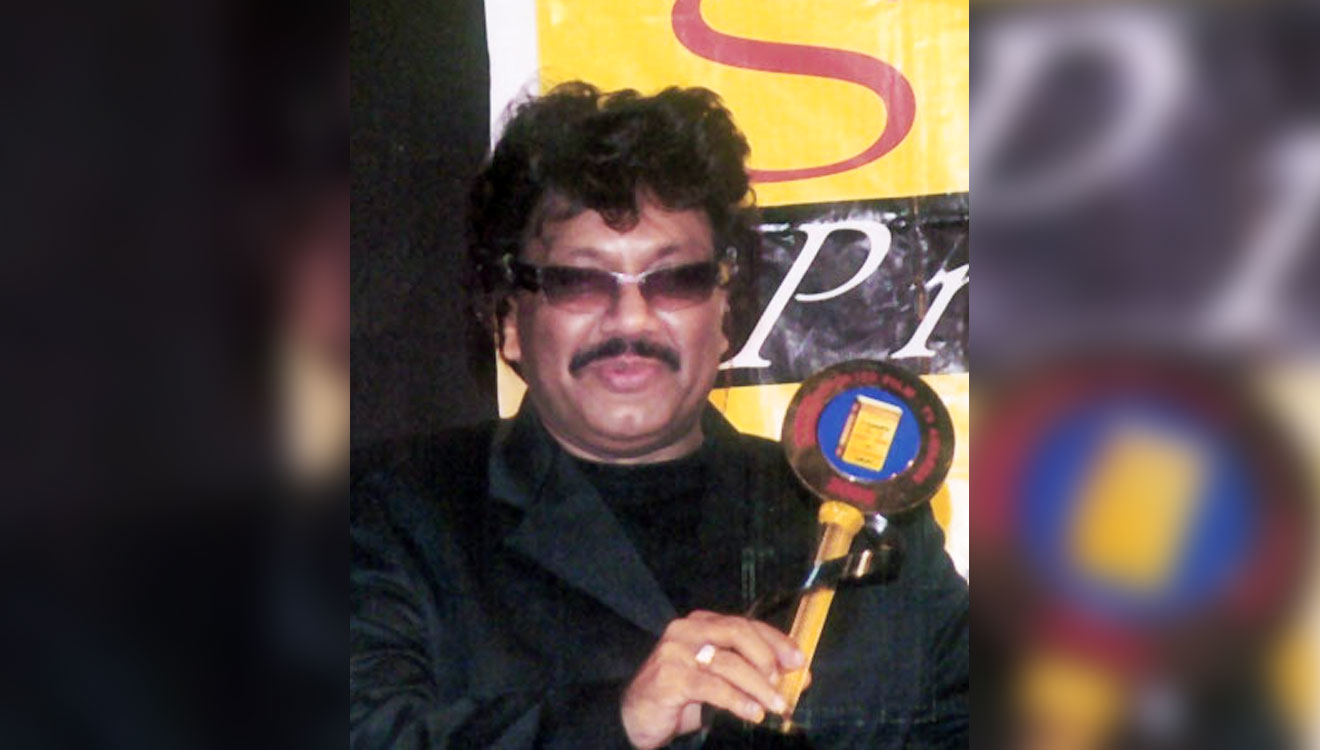An old promotional poster of a woman embracing a tiara made of snakes clings to a pale white wall of Tarama Opera, a jatra company, at their office building in North Kolkata.
This poster is a remnant of opulent jatra performances that took place around one year ago. For centuries, performers have brought epic plays to life through elaborate and dramatic jatra performances. Though these plays are interspersed with music, dance and monologues, the effects of Covid-19, has silenced them.
According to those running these jatra companies, performances have dried up in the last eight months. Despite the gradual lifting of the nationwide lockdown, owners of close to 40 companies in jatra para, the locality where most companies are situated, say that without financial investment to restart production, performers can expect steady income only by 2021.
Break
Jatras take place on open stages with audiences seated on three sides. Accompanied by loud music, this form of folk theatre sees actors engage on long, loud dramatic monologues. While this traditional theatre form is considered unsophisticated and crass in Bengal’s urban areas, jatra is immensely popular in rural Bengal and is a regular fixture during the numerous fairs held every winter.
“In a theatre play, the line is slow and steady toned. In jatras, the lines are hurried, loud and booming, making it highly impactful,” says Anol Chakroborty, a popular jatra artist with 35 years of experience.
Jatras usually carry political and social undertones in their performances. In recent years, the medium has helped provide employment for close to five lakh people in West Bengal.
“Most of those who participate are from rural areas and usually belong to economically weaker sections of society. Jatras are popular in villages and have been adopted by the cities more recently,” said Goutam Paul Choudhury, who works in a group that plays music during the performances.
The months between October and March is usually the peak season for jatra performances in West Bengal. The investment to produce a jatra varies between Rs 1 lakh to Rs 5.5 lakh. The profit margin for most of these plays is based on the demand of the season.
Although there are several hundred jatra performances each year during Durga Puja, there have been no bookings this year. According to the managers of theatres, despite their resuming business from October 1, jatra rehearsal rooms have remained silent.
Sixty-four-year-old book binder Rabindra Nath Dutta, whose shop is located in North Kolkata’s jatra para for close to a century, says that he has observed a steady loss of business in jatras over the last five years. However, he says that the virus has completely wiped them out this year.
“Out of the 40 dols (companies), only two are currently open. They belong to the members of the Calcutta Jatra Karmi Union. They have been regular meetings to discuss the future of jatra companies after a nine-month break,” he says.
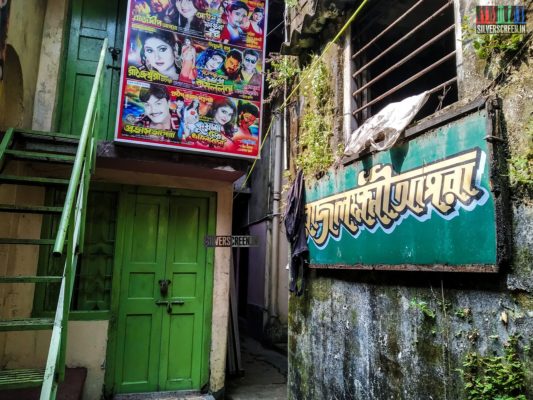
Investment
While producers usually invest in jatra plays, managers are supposed to confirm artists and book them for shows. There are at least 10 actors, technicians, musicians, director and writer involved in each production.
“The problem is that the rehearsal halls in Bagbazar, Salkia, and Ultadanga in north Kolkata, which are all highly popular and profitable, are not opening. The producers don’t want to invest. This is understandable considering they are insecure about returns. Their fear is justified, the workers’ agitation is just as valid,” says Choudhury.
Recommended
On October 19, the worker’s association of jatra companies conducted a meeting on the future of jatras in Kolkata. The members alleged that there has been no support from the West Bengal government and producers on resuming jatra shows during Durga Puja.
A single production attracts thousands of people. This year, with muted celebrations and Covid-19 protocols in place, the West Bengal government has denied permission to all kinds of social events during the festive season to curb the spread of the virus.
Haradhan Roy, secretary of Calcutta Jatra Karmi Union, says that the state government had initially assured that theatres and jatras would be allowed to resume. However, no action has been taken in this regard, he says.
“We have sent letters to the producers seeking help. But no one replied,” says Roy.
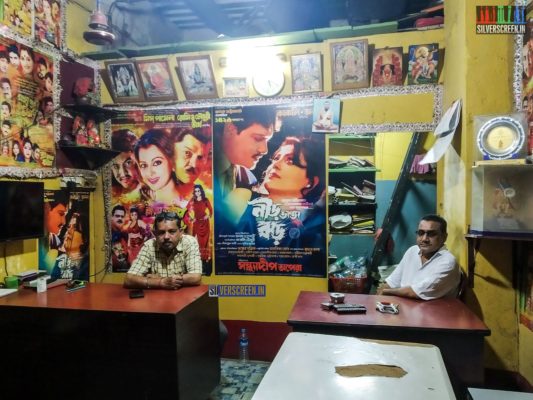
(left to right) Haradhan Roy and Vasudev Saha
Future
Though a handful of jatra actors have begun rehearsals, most are yet to resume. “We have no choice but to be hopeful of continuing the performances from December onwards,” says Kakoli Chowdhury, a jatra actor. She hopes to move past Covid-19 so that she can put up a performance in the Annual Jatra Utsav, which is organised by state government every year in January.
Tapan Kumar Sarkar, administrative head of Paschim Banga Jatra Academy which is run by the state government, says that he cannot comment on the occurrence of the festival or the performances until the end of Durga Puja.
